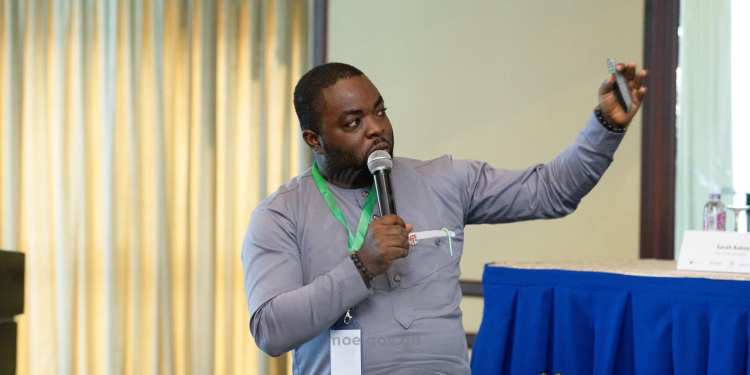The Executive Director of the Institute for Education Studies (IFEST), Dr. Peter Anti Partey says government does not have the plan to solve basic educational infrastructure problems.
According to him, each year his outfit provides the Ministry of Education with the statistics of schools in dire need of infrastructural development, yet nothing has been done.
This, he said proves the system is not designed to solve infrastructural problems in the various basic public schools.
“This variable I am talking about is all captured every year and sent to the Ministry of Education, so if you still have schools in a such deplorable state, if you have district directors that are complaining about the lack of chairs and the lack of desks and the lack of teachers in a particular school what it simply means is our system has not been designed to solve these basic problems in our basic school system,” he said.
He was reacting to a recent documentary by JoyNews titled. "Ghana’s Schools of shame" which highlighted the poor infrastructure conditions of schools where students sit on floors in some schools to study.
Speaking in an interview on JoyNews Today, he explained that data his outfit carries out each year highlights the similar problem in the documentary, but the Ministry has since not taken any action.
He added that the Education Ministry is aware of all the happenings on the ground.
“ If anybody tells you that the Ministry or any official is not aware of the state of our educational infrastructure across the country, that person is not telling you the truth because every year we collect a lot of data on school infrastructure.
“That data is school-based data, what that means is that every year, we know the number of desks in each classroom, in every basic school in this country,” he stressed.
Dr. Anti then quizzed what the government is doing to solve the situation.
“What pragmatic steps have you put in place to ensure that this district, this is the nature of infrastructure in this district? infrastructure does not necessarily mean the state of a school building, it looks into human resource base in that particular school, operation equipment, electricity because we are doing ICT, internet and places of convenience,” he said.
The educational expert commended the Multimedia Group for the documentary which highlights the infrastructural problems in the education sector.
Latest Stories
-
As theories swirl about Air India crash, key details remain unknown
1 minute -
How to register for 2025 Absa Black Star Marathon
19 minutes -
Ministry of Defence withdraws military protection for ineligible civilians
25 minutes -
Ethiopian troops ‘executed’ aid workers in Tigray war, charity says
36 minutes -
I’m ‘disappointed but not done’ with Putin, Trump tells BBC
38 minutes -
Today’s Front pages: Tuesday, July 15, 2025
1 hour -
Fitch affirms UBA Ghana’s Credit Rating at ‘B-’, citing strong profitability and capital buffers
3 hours -
‘SafeCare is Changing Lives’: Gradually redefining quality care in Ghana
3 hours -
NSA Director General graces Teqball National Club Championship, calls for corporate support
3 hours -
Novo Nordisk and American Society of Hematology announce new initiative to help improve sickle cell disease care in Africa
3 hours -
Telecel Ghana rewards 12th Dream Car Promo Winner with brand-new Hyundai Creta
3 hours -
No vigilante group can defy a determined police – CDD Ghana’s Dr Kojo Asante
3 hours -
Grow For Me: Transforming Agriculture through mobile investment
4 hours -
Musk’s Grok signs $200m deal with Pentagon days after antisemitism row
4 hours -
10 Chinese nationals denied bail in gold case
4 hours

